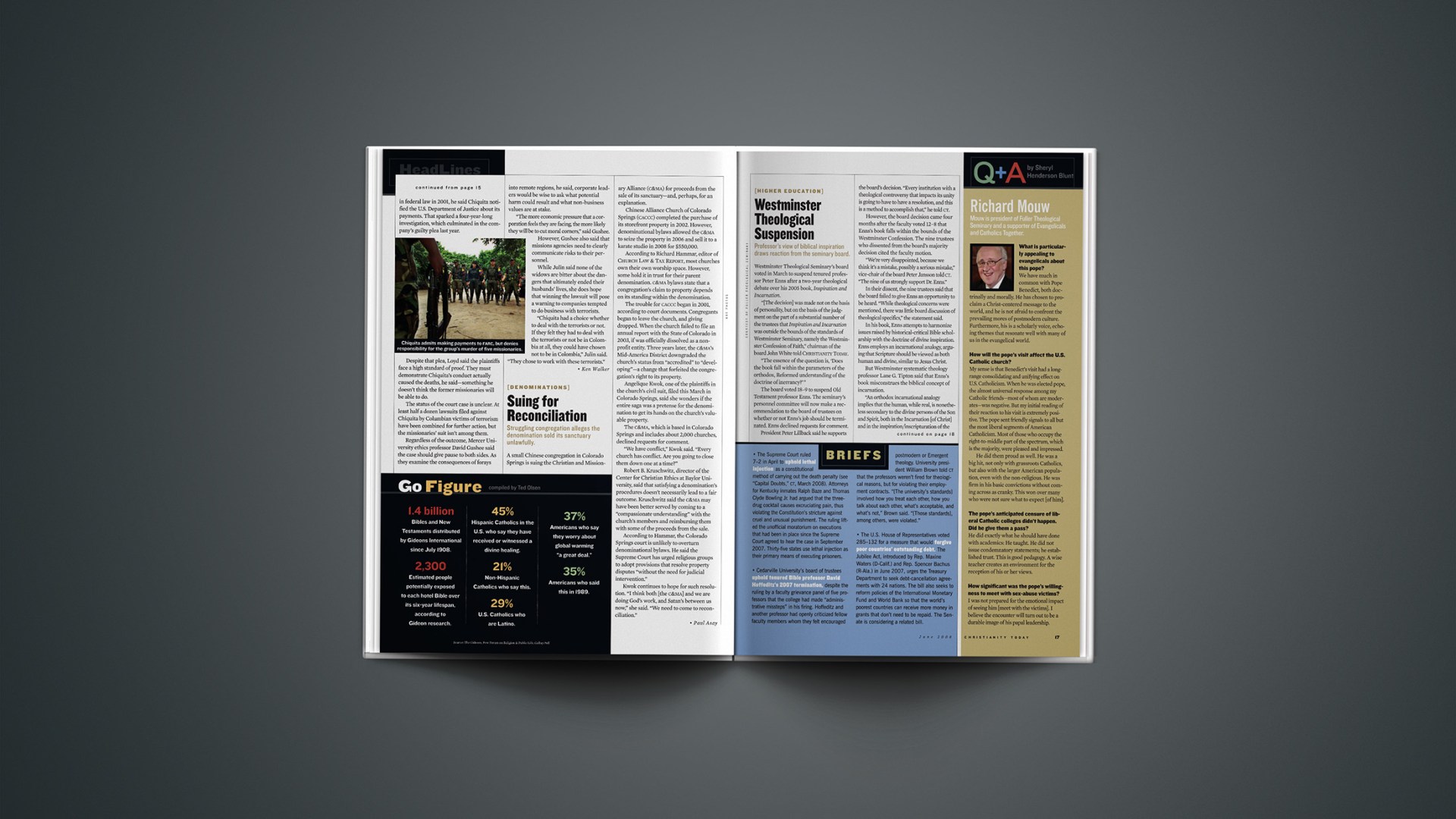• The Supreme Court ruled 7–2 in April to uphold lethal injection as a constitutional method of carrying out the death penalty (see “Capital Doubts,” ct, March 2008). Attorneys for Kentucky inmates Ralph Baze and Thomas Clyde Bowling Jr. had argued that the three-drug cocktail causes excruciating pain, thus violating the Constitution’s stricture against cruel and unusual punishment. The ruling lifted the unofficial moratorium on executions that had been in place since the Supreme Court agreed to hear the case in September 2007. Thirty-five states use lethal injection as their primary means of executing prisoners.
• Cedarville University’s board of trustees upheld tenured Bible professor David Hoffeditz’s 2007 termination, despite the ruling by a faculty grievance panel of five professors that the college had made “administrative missteps” in his firing. Hoffeditz and another professor had openly criticized fellow faculty members whom they felt encouraged postmodern or Emergent theology. University president William Brown told ct that the professors weren’t fired for theological reasons, but for violating their employment contracts. “[The university’s standards] involved how you treat each other, how you talk about each other, what’s acceptable, and what’s not,” Brown said. “[Those standards], among others, were violated.”
• The U.S. House of Representatives voted 285–132 for a measure that would forgive poor countries’ outstanding debt. The Jubilee Act, introduced by Rep. Maxine Waters (D-Calif.) and Rep. Spencer Bachus (R-Ala.) in June 2007, urges the Treasury Department to seek debt-cancellation agreements with 24 nations. The bill also seeks to reform policies of the International Monetary Fund and World Bank so that the world’s poorest countries can receive more money in grants that don’t need to be repaid. The Senate is considering a related bill.
Copyright © 2008 Christianity Today. Click for reprint information.
Related elsewhere:
The Supreme Court’s decision in Baze v. Rees, the lethal injection decision, is available on the court’s website. SCOTUSBlog, The New York Times (more), The Washington Post, and many other sites have analysis of the decision. Executions resumed May 6 in Georgia.
Christianity Today earlier covered Cedarville’s tenure dispute.
More information about the Jubilee Act and its Senate version are available at the Thomas website.










